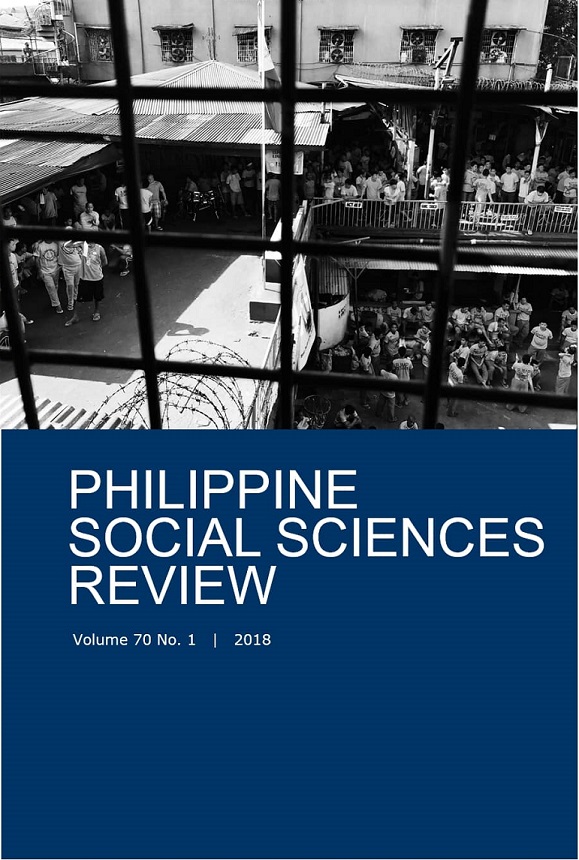Doing Qualitative Research on Emotional Labor in a Philippine City Jail: Some Methodological Reflections
Abstract
In the past four decades, the sociology of emotions has been gaining constant momentum as a field of study (Bericat, 2016). It concerns, among others, on such questions as—how do social forces influence what we ought to feel and how to express them? In what manner should we accord emotions into interactions, exchanges, contexts, and structures within the ironies of modernity? What methodological tools should a researcher proceed with in a project?This paper is about conducting qualitative research on emotions in a highly masculinized setting: a city jail for men that has the densest detainee population in Metro Manila, a space that is not only traditionally in disbelief of emotions, but one that is also mandated to observe a rigidly structured bureaucracy. The qualitative study from which these reflections are derived from delves into the exchange value of feeling-modification at work. Emotional work is present in majority of all jobs, especially those involving front liners in delivering services and executing institutional promises to its clients.
This paper aims to add to the literature in handling qualitative researches in a highly secured, closed, and intensely bureaucratic settings, such as the jail. Utilizing the work of Hochschild (1983) on emotional labor, it also aims to contribute to the literature on the ways in which we can study emotions. Here, I share my reflections on how I, (1) approached the ironclad dispositions of jail officers; (2) navigated through the invisibility of personal feelings in their work; and (3) investigated on their necessity to alter and manage emotions, not only to carry out people work but also, I argue, to shield themselves from all the stressors in an overcrowded and dilapidated facility that houses a city’s portion of President Duterte’s drug-war targets.
Published
2021-07-27
How to Cite
NARIO-LOPEZ, Hannah Glimpse Nario-Lopez.
Doing Qualitative Research on Emotional Labor in a Philippine City Jail: Some Methodological Reflections.
Philippine Social Sciences Review, [S.l.], july 2021.
ISSN 2672-3158.
Available at: <https://journals.upd.edu.ph/index.php/pssr/article/view/7869>. Date accessed: 02 oct. 2025.
Section
Research Notes
Keywords
Philippine jails, jail officers, qualitative methods, sociology of emotions


